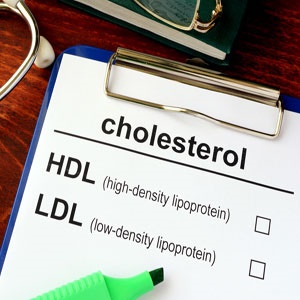
Here's another reason to keep your cholesterol under control: New research suggests that LDL, or "bad", cholesterol may play a role in the development of early-onset Alzheimer's.
A rare form of the disease that occurs before the age of 65, early-onset Alzheimer's has previously been linked to a gene mutation involved in how the body processes fats and cholesterol. But that mutation only accounts for a small percentage of cases, the scientists noted.
Existing data murky
Their new research suggests that "LDL cholesterol levels [also] play a causal role in the pathogenesis of Alzheimer's disease," said lead researcher Dr Thomas Wingo. He's an assistant professor of neurology at Emory University School of Medicine in Atlanta.
"The big question is whether there is a causal link between cholesterol levels in the blood and Alzheimer's disease risk," Wingo said. "The existing data is murky on this point. Our current work is focused on testing whether there is a causal link."
Most early-onset Alzheimer's disease is not explained by known gene mutations, Wingo added.
The APOE genetic mutation, called APOE E4, raises levels of LDL cholesterol. High levels of this type of cholesterol can clog arteries, increasing the risk for heart attack and stroke.
Other gene mutations associated with early-onset Alzheimer's are called APP, PSEN1 and PSEN2.
But all of these genetic variants are only linked to about 10% of all cases of early-onset Alzheimer's. That leaves 90% of all early-onset Alzheimer's unexplained, Wingo said.
Independent risk factor
For the study, he and his colleagues sequenced specific areas of the genes of more than 2 100 people. Of these, more than 650 suffered from early-onset Alzheimer's. In addition, more than 260 participants had their cholesterol levels checked.
The researchers found that the APOE E4 mutation accounted for about 10% of early-onset Alzheimer's, which is the same as seen in late-onset Alzheimer's.
They also looked for APP, PSEN1, and PSEN2 mutations, and found that about 3% of early-onset Alzheimer's patients had at least one of these variants.
Wingo's team also found that participants with high LDL cholesterol levels were at a greater risk for early-onset Alzheimer's, compared with those with lower LDL levels.
LDL cholesterol levels remained salient even after taking APOE mutations into account. Thus, cholesterol may be an independent risk factor for early-onset Alzheimer's, Wingo said, though the study did not prove that high LDL cholesterol levels caused early-onset Alzheimer's.
No link was found between Alzheimer's and HDL ("good") cholesterol. A slight association was seen, however, with triglyceride levels.
Longstanding suspicion confirmed
A link between LDL cholesterol and early-onset Alzheimer's was not completely explained by APOE or an even rarer gene mutation known as APOB, which suggests that factors including other genes may increase the risk, Wingo said.
"If there is a causal link between Alzheimer's disease and cholesterol, we might need to revise targets for LDL cholesterol levels to help reduce Alzheimer's risk," he said.
Dr Sam Gandy, director of the Mount Sinai Center for Cognitive Health, and NFL Neurological Care in New York City, said these findings are credible and likely to be replicated in the coming months.
This finding confirms a longstanding suspicion that cholesterol is one of the major players in Alzheimer's disease, he said.
This is especially noteworthy because it can have major implications for treatment, said Gandy, who wasn't involved with the study. "It's a very exciting counterpoint to continued loss of enthusiasm for directly targeting amyloid plaques in the brain," he said.
For years, the build-up of those protein plaques in the brain had been thought to be a possible cause of Alzheimer's, but recent drug trials aimed at lowering amyloid have shown little effect on the disease.
The report was published online in the journal JAMA Neurology.
Image credit: iStock




 Publications
Publications
 Partners
Partners











